Completing the Void: Finding What's Missing in a Software Engineering Career
Sebastian is a software engineer with over a decade of experience. Read about his journey through various areas of software development until he fully embraced native iOS. Discover his tips for successful software modernization, his approach to working in international teams, and more!
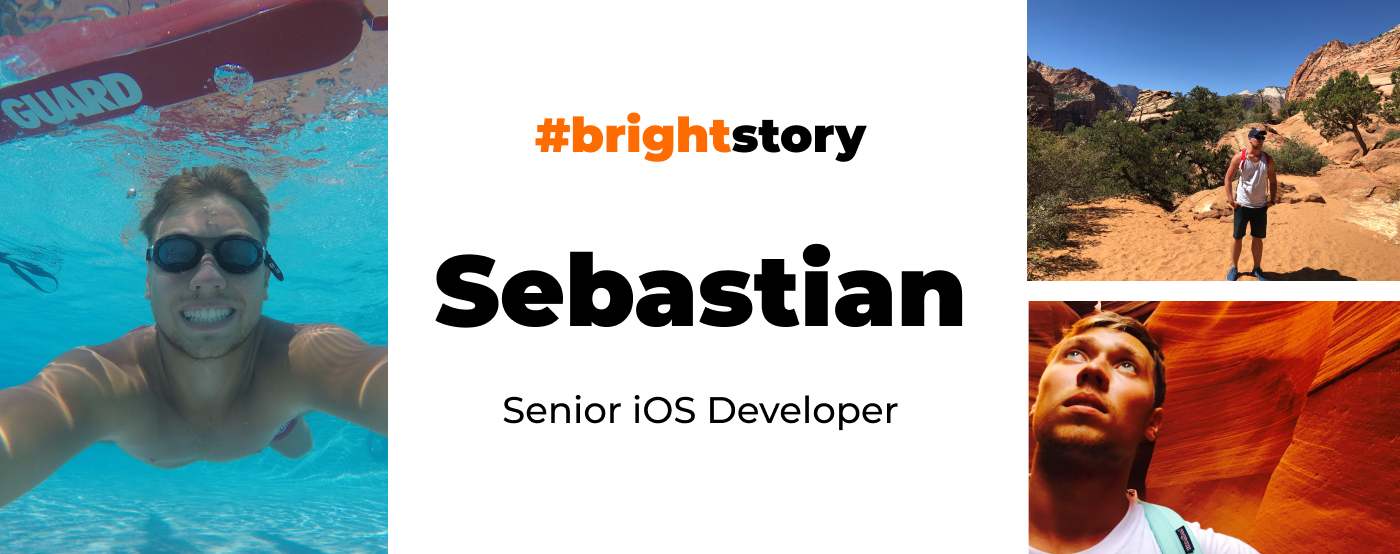
Was your career always related to iOS development?
No, my career started in frontend and then backend development, but I didn’t really enjoy that. Afterward, I worked for 4–5 years on hybrid applications and eventually decided to learn Android development, before finally switching to iOS.
Why did you have all these changes in your career direction?
I was simply looking for ways to grow and develop myself. I spent quite a long time in the hybrid app development world, but something always felt missing – mainly in terms of functionality and performance. I often found myself needing to implement native components, which naturally led me toward native development.
Also, I didn’t like the fact that sometimes you had to wait for crucial updates in the framework or plugins just to make your cross-platform app work properly. That was frustrating and limiting.
You’ve been a software developer from the beginning of your career, but you didn’t study Computer Science, did you?
That’s right – I chose Automatics and Robotics for my Bachelor’s studies to keep my horizons broad. I wanted to have the flexibility to pursue different career paths, especially those related to digitalization.
In the end, programming spoke to me the most. I was always drawn to coding, even though the languages used in robotics were a bit outdated. I started exploring more modern programming languages in my free time, and that’s when I realized that software development was the direction I really wanted to follow.
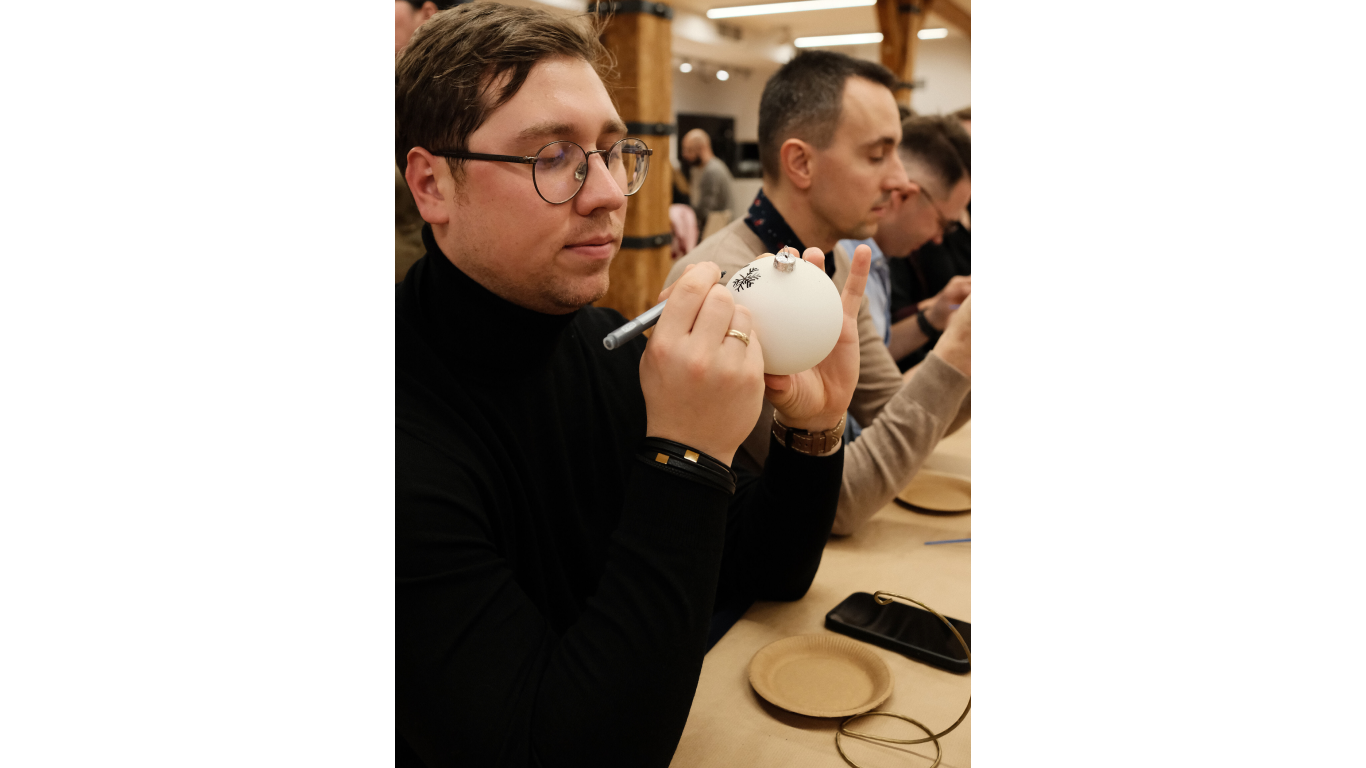
Christmas party vibes.
What are the biggest challenges for iOS developers right now?
One is, naturally, the rapidly developing cross-platform solutions that are becoming more and more competitive, and it’s getting harder to convince a client to invest in native development.
Another challenge, common for all programmers, is learning how AI may support us in daily work – catching up with all these tools and recommending some of them to clients.
What AI tools do you use on a daily basis apart from Microsoft Copilot?
I mostly work with ChatGPT o3-mini-high and experiment with Apple Intelligence.
What are your responsibilities right now?
For one of our clients, we’re implementing a full redesign of the mobile application, which also involves a complete modernization – we’re basically building a new app from scratch, while still providing full support for users of the current version. We’re introducing newer solutions, including switching from UIKit to SwiftUI.
The client is very open to testing new solutions, which is great, but it’s also our responsibility to carefully evaluate whether adopting a trendy new technology is actually the right fit for our project.
What is your advice for successful app modernization?
It’s better to plan app modernization with a clear understanding of the broader business context of the solution we’re about to rewrite. If we don’t have that perspective, we need to ask questions on the client’s side to better understand what exactly we’re changing. It goes far beyond just the code – any software modernization can impact the entire digital business.
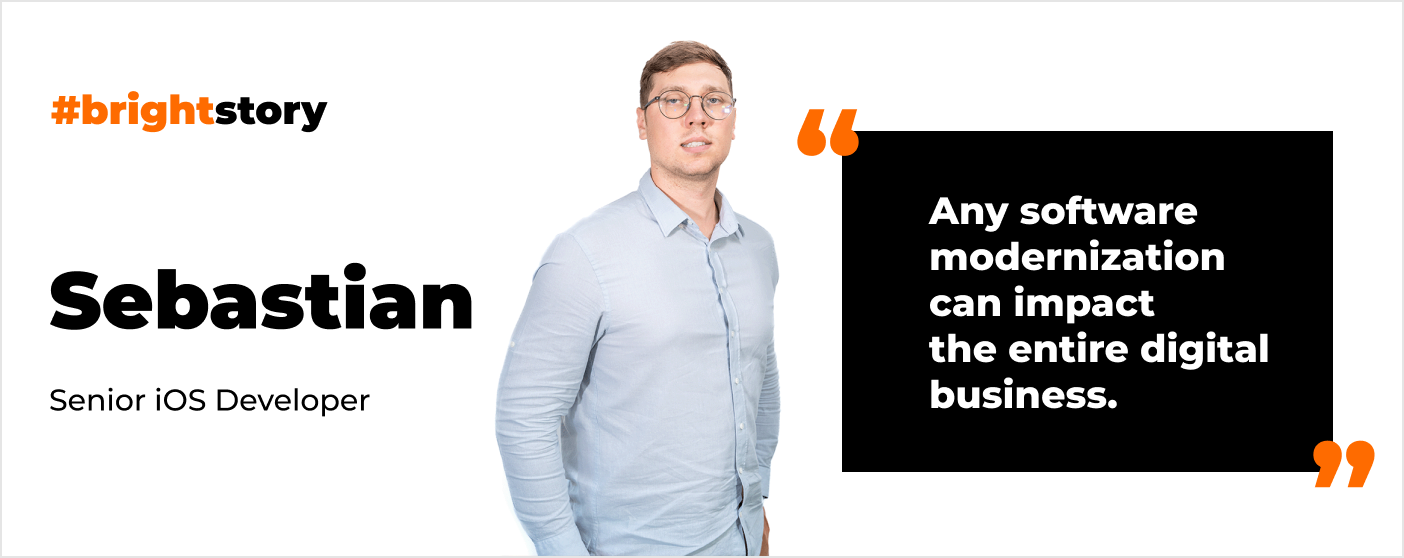
You work with clients from across the globe. What is it like to work in multinational teams?
I enjoy working in inclusive teams because each country brings a different perspective. I get the chance to learn more about other people’s habits, cultures, and even work techniques. Also, I don’t mind working with people in different time zones – for example, syncing with US time doesn’t bother me at all, although I understand why it can be challenging for some people.
What differences between the Polish perspective and other countries have you noticed?
I think one clear difference is our tendency in Poland to avoid speaking openly and proudly about what we've achieved at work. For many of us, once something is done, it feels obvious and not worth mentioning. But I’ve noticed, for example in American culture, that they celebrate every step forward – what we might see as a minor milestone can be seen as a significant success.
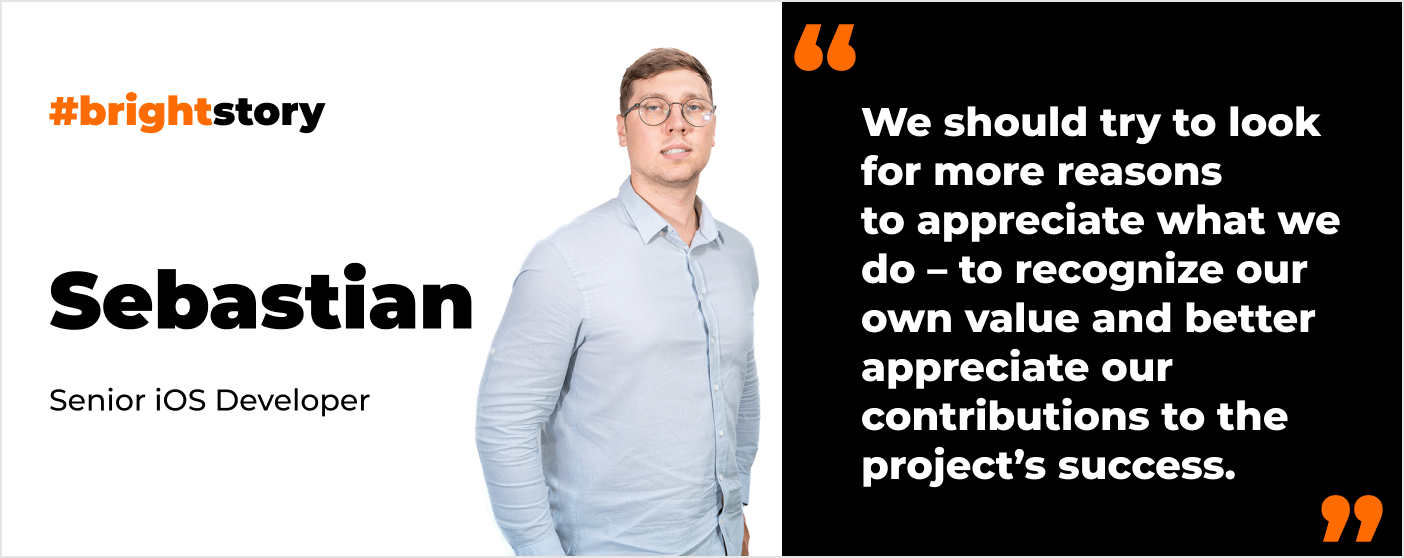
I think here in Poland, we should also try to look for more reasons to appreciate what we do – to recognize our own value and better appreciate our contributions to the project’s success.
You’ve been a part of Bright Inventions for nearly 3 years. Any thoughts on these past years?
I really enjoy working here. I appreciate the support I get from my colleagues and managers – they encourage me to grow. I also love the fact that I can truly influence the project I’m working on. It gives me the opportunity to look at it not only from a technical perspective but also from a business point of view. That’s a great aspect of my work, and it’s something that can’t be taken for granted as a programmer.
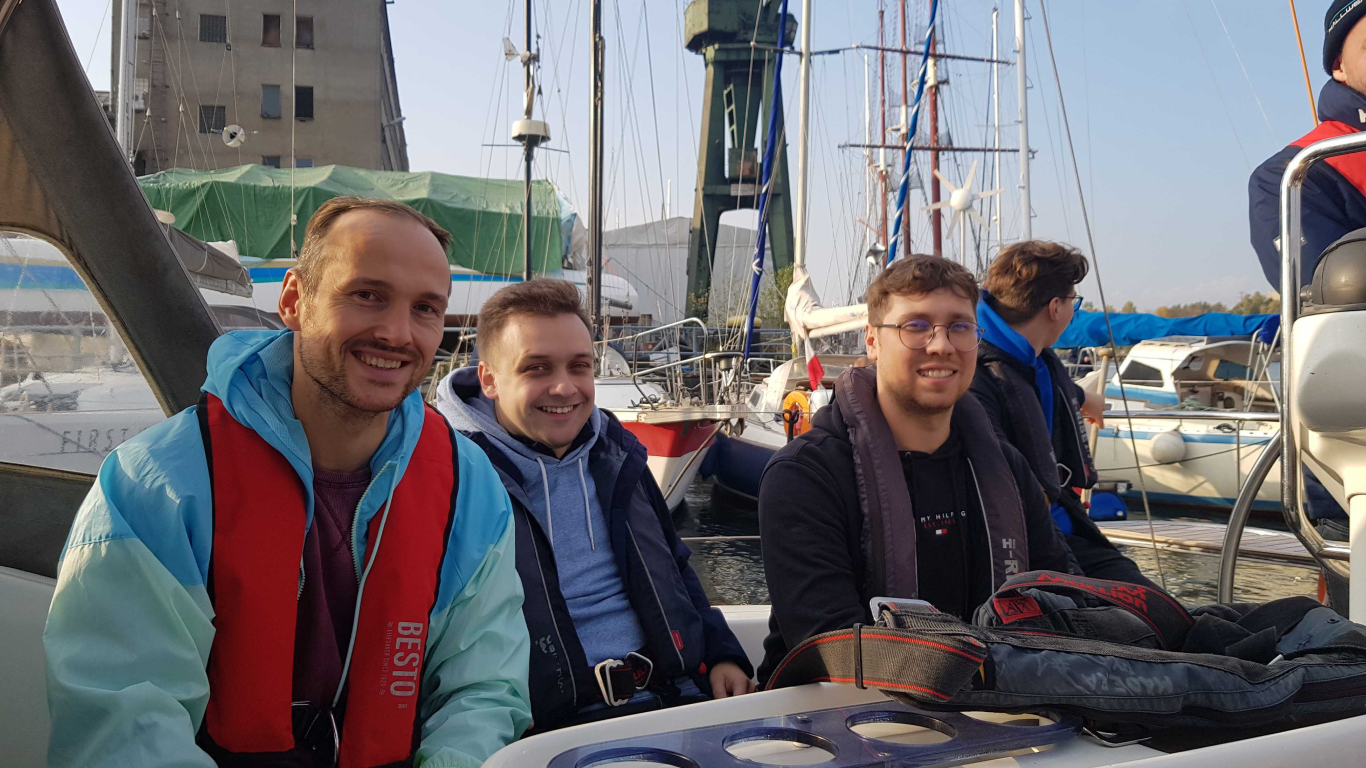
At our team-building sailing retreat.
Is it true that you worked as a lifeguard in the USA?
Oh yes! I always wanted to visit the USA, but of course, you need money for that. When I was a student, some friends recommended a program for working and traveling. Since my wife and I could swim quite well (she’s actually much better than me), we thought we could work there as water lifeguards.
We got in touch with a company in Poland that organized everything, we also completed the American lifeguard course, and eventually went to the US for 4 months during my fourth year of college. We worked for 3 months and then traveled across the States for a month. I have great memories from that time and still keep in touch with some of the people I met there.
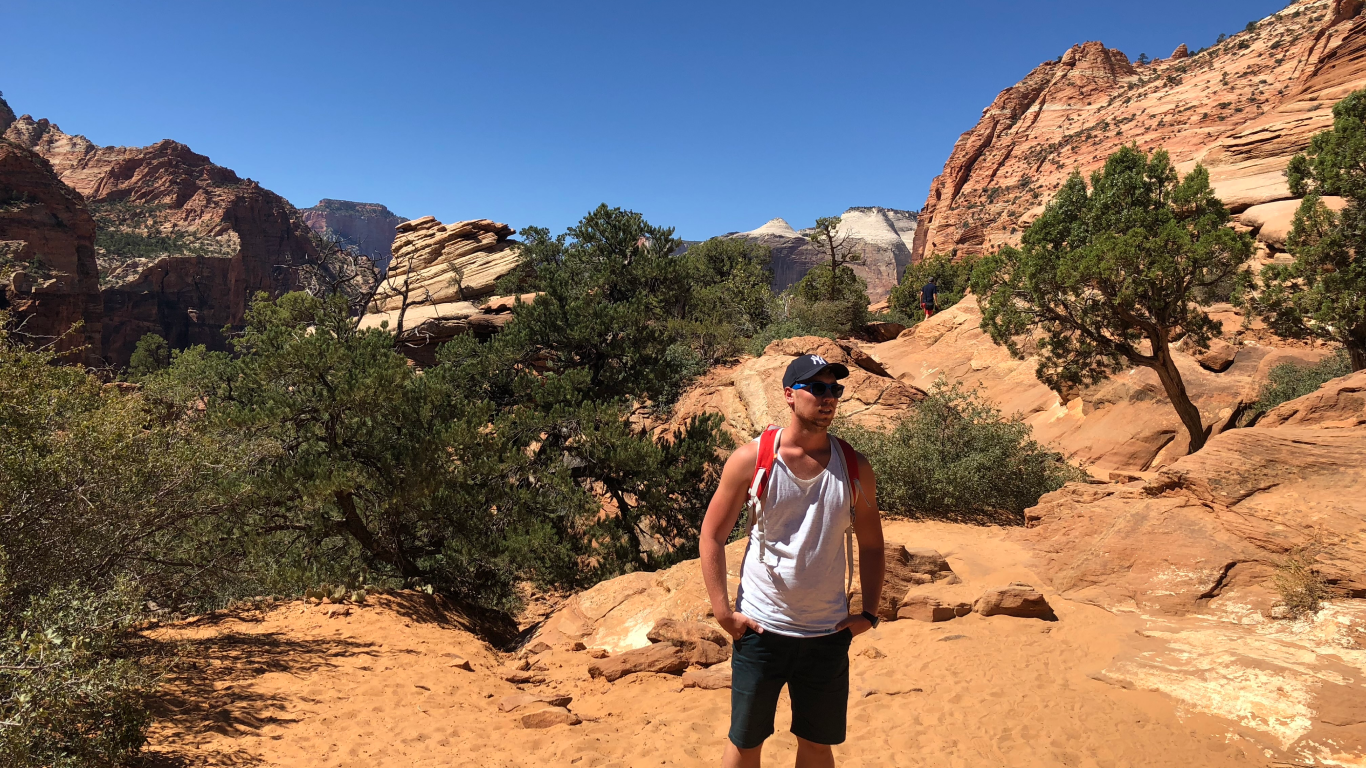
Visiting Zion National Park in the USA.
I heard that you like walking in the woods in the evening. What are you looking for there? 😉
Some adventures for me and my dog, Admin. 😄

